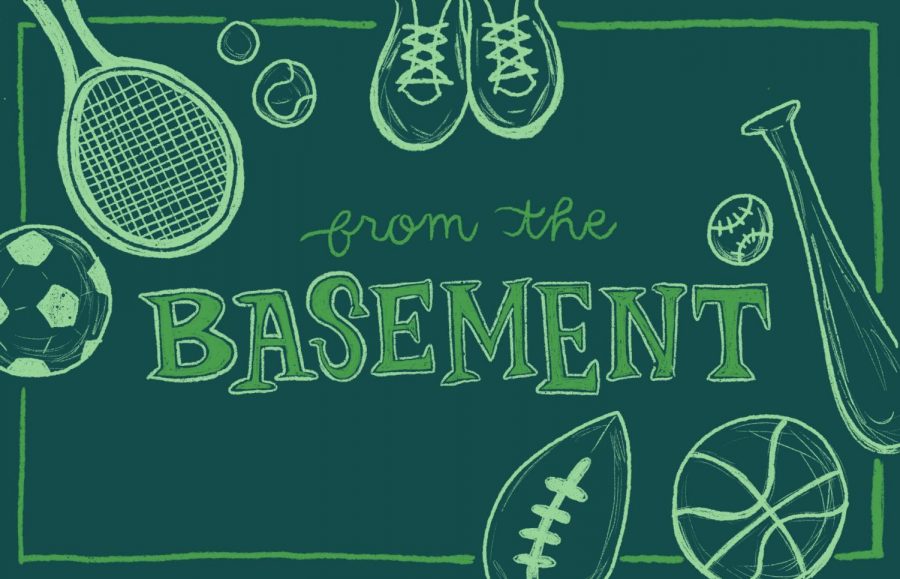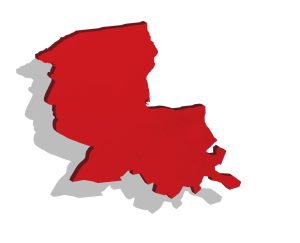From the Basement | European Super League is dead. Why are fans still angry?
April 28, 2021
On April 18, a group of 12 European soccer clubs announced the formation of a new European Super League. These 12 teams include: Manchester United, Manchester City, Arsenal, Tottenham Hotspur, Chelsea and Liverpool from England; AC Milan, Internazionale Milan and Juventus from Italy; and Barcelona, Real Madrid, and Atlético Madrid from Spain. These 12 teams are in the top 16 richest soccer clubs in the world according to Forbes magazine. Two days later, the Super League completely fell apart, with all six English teams pulling out and caving in to the heavy backlash from fans, former players, several world leaders and several governing bodies of the sport. The owners of the six English clubs issued apologies to the fans, although that did not stop the fans from staging mass protests outside their stadiums against the owners themselves. About 20 Manchester United fans broke into the training facility of the club to protest the American ownership of the club, followed by a mass protest thousands strong outside the stadium the next day.
This vitriolic reaction begs several questions. What was it about the Super League that caused such uproar? Why are the fans still angry? How are the actions of The Union of European Football Associations similar to what the Super League tried to do? Here is an analysis, question by question.
First, what was the Super League, and what about it made it so unpopular? In a nutshell, European soccer is split into domestic and pan-European competitions. Currently, a club must finish in the top four spots in their domestic league in order to qualify for the UEFA Champions League, or the UCL, the most prestigious and a highly profitable club competition in the world. Domestic league games are usually played on weekends, and Champions League games are midweek. The Super League attempted to replace the Champions League as that midweek game.
Why is this a bad idea? First, the Super League will only consist of 20 members every year, compared to the 79 teams competing in the UCL. Fifteen teams, the 12 aforementioned teams and three others that declined entering the Super League, would remain permanent members, and five teams across Europe would be invited annually. In other terms, 15 teams out of the 20 do not have to qualify for what would be one of soccer’s most profitable tournaments because they are permanent members. This tournament would essentially be a way for historically elite and financially powerful clubs to ensure an undeserved place in an elite competition.
Here is a quick rundown of why several of the founding clubs have no place anywhere near a European Super League. Arsenal has been terrible for the past few years, and currently sit in 10th in this year’s Premier League as of writing this article. They are in danger of not even being in the best half of English teams, let alone best 12 teams in the world. Tottenham currently sits in seventh in the Premier League and has only qualified for five of the last 10 Champions Leagues. Liverpool are plagued by injuries and an anemic attack and currently sit in sixth. Liverpool experienced a volatile decade and also only qualified for the Champions League five times in the last decade. As recently as 2015-2016, Chelsea finished the season at a disappointing 10th in the league. AC Milan has been frankly pathetic the past decade, finishing in a Champions League spot only five times in the past decade.
Why else were the fans angry, besides the blatant elitism of the big clubs? This boils down to two reasons: the romantic view of the sport of soccer and money. Money is the easier of the two to understand. The Super League is about money at the end of the day, proved by the fact that JPMorgan Chase would have given about between 200 and 300 million euros to every team that joined the Super League as a welcome bonus. In comparison, the Champions League gives out substantially less than that to the winner of the Champions League. Fans interpret this as the owners of the big clubs trying to enrich themselves and point to the rising ticket prices of the last several years as proof.
The romantic view of the sport is that a club earns every bit of their success. A club earns Champions League qualification, then earns the trophy by beating out the best in Europe. Underdog stories and major upsets happen, and these stories are ingrained into the fabric of the Champions League. For example, in 2019, Ajax from the Netherlands made the Champions League semifinals, knocking out Real Madrid and Juventus along the way. Two years prior, Monaco from the French league also made the semifinals, beating Tottenham twice in the group stage and knocking out Manchester City. Various smaller clubs have won big upsets in the Champions League, including Celtic from Scotland beating FC Barcelona in 2012, Deportivo La Coruña from Spain beating Milan in 2004 and Shakhtar Donetsk from Ukraine, a team that cannot even play in their own home city because of an active war, beating Real Madrid this season not once, but twice. All of this would have gone away if the Super League succeeded.
What is going to happen in the future, and why is UEFA not much better than the Super League? UEFA is proposing its own revamped Champions League, the so-called Swiss Model, set to start in the 2024-25 season. This proposal is designed to make more money as well by raising the amount of total games in the Champions League from 125 to 225. The number of teams in the group phase, when most fans begin watching and when the big teams start playing, will rise from 32 to 36. Every team will play four to six more games in the group phase. These games would be skewed so that every team has roughly the same strength of schedule. This model would also increase the amount of times the bigger clubs in Europe play each other.
This idea is terrible for several reasons and essentially is a watered down version of the previous Super League. First, since the Champions League is expanding the group stage from 32 to 36 teams, it is worth examining who the four teams qualifying are. The first will be an extra qualification slot for the fifth best league in Europe ranked by UEFA, currently France. The second spot would be an extra slot for those clubs who have to qualify through the preliminary qualifying rounds, benefitting big clubs in medium sized leagues such as Denmark, Turkey and the Czech Republic. The final two spots are where the controversy lies. These two spots will go to the two best teams who are historically good but did not qualify last season. This recreates the aforementioned elitism problem of the Super League. The way that UEFA currently calculates how good teams are, called the UEFA Club Coefficient, English teams are highly likely to get one, if not both of these slots.
The second problem is fixture congestion, which is when teams play too many games in too little time. Under the current system, players play too many games, more than recommended. Managers of the biggest clubs in Europe loudly complain about fixture congestion and with good reason. Fixture congestion leads to increased injury risk for all players, especially when players are given less rest between games. Again, this problem disproportionately affects smaller clubs. The big clubs can rotate players out and give them adequate rest, knowing that the backups are still some of the best players in the world. Meanwhile, smaller clubs will be forced to play their best lineup every game to remain competitive, increasing the risk that their best players get injured. Adding more games to a schedule that is already overpacked could prove disastrous to the players.
The Super League may be dead, but the fundamental issues surrounding it are not. The new Champions League format retains many of the important points of the Super League, albeit to a much lesser degree. Most importantly, the new Champions League is driven by money that will disproportionately go to the bigger clubs. Soccer fans have a right to be angry and to demand change in a sport increasingly dominated by club and federation executives. In order to save the beautiful game, more fans will continue to protest until these executives leave the sport for good.










Leave a Comment